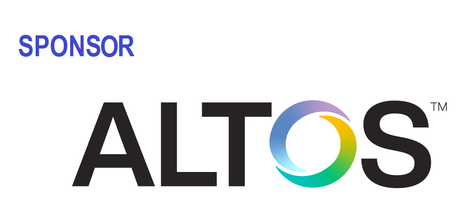Overview
Integrating information from now widely available -omics and imaging modalities at multiple time and spatial scales with personal health records has become the standard of disease care in modern public health. Moreover, given the ever-increasing role of the World Wide Web as a source of information in many domains, including healthcare, accessing, managing, and analyzing its content has brought new opportunities and challenges. The advances in web science and technology for data management, integration, mining, classification, filtering, and visualization have given rise to various applications representing real-time data on epidemics.
Furthermore, to tackle and overcome several issues in personalized healthcare, the evolution of information technology is crucial. It will improve communication, collaboration, and teamwork among patients, their families, healthcare communities, and care teams involving practitioners from different fields and specialties. All these changes require novel solutions, and your role as a member of the AI community is pivotal. You are well-positioned to provide both theoretical- and application-based methods and frameworks, making your contribution invaluable.
The workshop will showcase a diverse range of original contributions to theory, methods, systems, and applications of data mining, machine learning, databases, network theory, natural language processing, knowledge representation, artificial intelligence, semantic web, and big data analytics in web-based healthcare applications. This variety of applications, with a focus on population and personalized health, is a testament to the exciting potential of the field.
Topics
The workshop will include original contributions on theory, methods, systems, and applications of data mining, machine learning, databases, network theory, natural language processing, knowledge representation, artificial intelligence, semantic web, and big data analytics in web-based healthcare applications, with a focus on applications in population and personalized health. The scope of the workshop includes, but is not limited to, the following areas:
- Knowledge Representation and Extraction
- Integrated Health Information Systems
- Patient Education
- Patient-Focused Workflows
- Shared Decision Making
- Geographical Mapping and Visual Analytics for Health Data
- Social Media Analytics
- Epidemic Intelligence
- Predictive Modeling and Decision Support
- Semantic Web and Web Services
- Biomedical Ontologies, Terminologies, and Standards
- Bayesian Networks and Reasoning under Uncertainty
- Temporal and Spatial Representation and Reasoning
- Case-based Reasoning in Healthcare
- Crowdsourcing and Collective Intelligence
- Risk Assessment, Trust, Ethics, Privacy, and Security
- Sentiment Analysis and Opinion Mining
- Computational Behavioral/Cognitive Modeling
- Health Intervention Design, Modeling and Evaluation
- Online Health Education and E-learning
- Mobile Web Interfaces and Applications
- Applications in Epidemiology and Surveillance (e.g., Bioterrorism, Participatory Surveillance, Syndromic Surveillance, Population Screening)
- Hybrid Methods
- Computational Models for Studying Health Disparities and Health Equity
- Generative AI and Foundation Models
- Computational Models of Ageing
This year’s workshop theme is “Application of Generative AI in Medicine and Healthcare.” The workshop will include a welcome session, keynotes, and invited talks, full/short paper presentations, demos, posters, and a special track focused on generative AI.
Format
The workshop will be consisting of a welcome session, keynote and invited talks, full/short paper presentations, demos, posters, and a panel discussion. In addition, we invite participants to present in a special track focused on social determinants of health and equitable healthcare. This special track will highlight work using AI to address the inequalities experienced across healthcare systems.
Submissions
We invite workshop participants to submit their original contributions following the AAAI format through EasyChair. Three categories of contributions are sought: full-research papers up to 8 pages; short papers up to 4 pages; and posters and demos up to 2 pages. Submissions to the special track can be either full or short papers, and we ask authors to select the special track option during submission. The workshop uses single-blind peer review system.
Important Dates
November 22, 2024: Submissions due (*** Extended till November 24, 2024 *** )
December 16, 2024: Notification of acceptance
December 19, 2024: AAAI-24 Early Registration Deadline
January 15, 2025: Final Camera-Ready Version
March 4, 2025: W3PHIAI'23 Workshop Program
Proceedings
All accepted papers will appear in the workshop proceedings that will be published by Springer/Nature in Studies in Computational Intelligence
Journal Publication Opportunity
A selected number of papers presented at the workshop will have opportunity to appear in a special issue of a top Journal in the field (TBD), subject to further review. Last years a selected number of revised/extended articles have been published in leading journals in health and biomedical informatics including IEEE Journal of Biomedical and Health Informatics special issue on Explainable AI for Clinical and Population Health Informatics, Artificial Intelligence in Medicine on "Precision Digital Medicine and Health", and at "Population & Personalized Health Intelligence" Collection in NPJ Digital Medicine (Nature), and Experimental Biology and Medicine (EBM).
